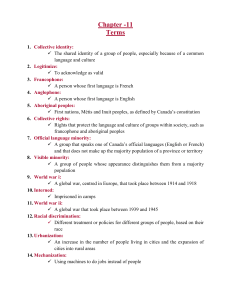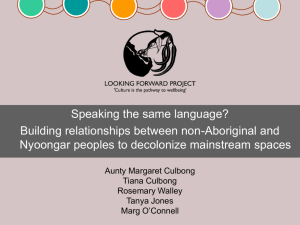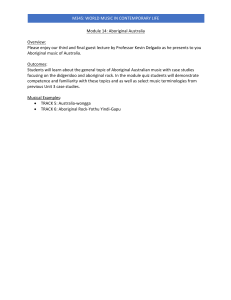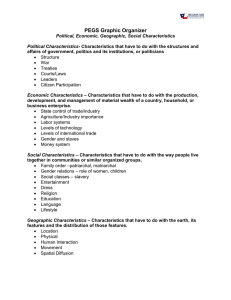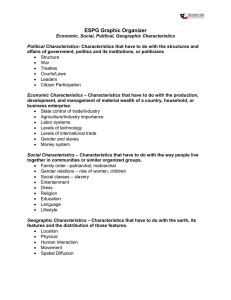Canadian Geography: Sense of Place & Aboriginal Perspectives
advertisement
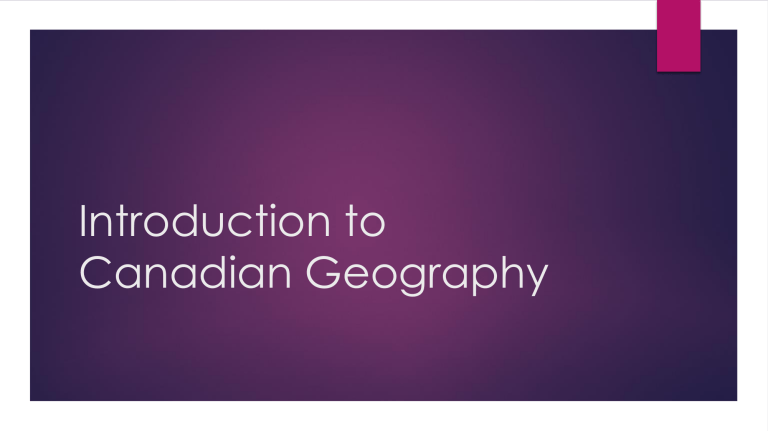
Introduction to Canadian Geography Developing a Sense of Place Think about a special place in the world that holds an important meaning for you. What was it about the landscape, building, history and/or people that made this place special? A “Sense of Place” is what makes a place special or unique. This involves our knowledge of the place and our understanding of how people interact within the space. Three Key Questions Geographers develop a sense of place by asking 3 key geographic questions. These questions include: What is Where? Why There? Why Care? Key Terms to Review Absolute Location – where something is located in terms of latitude and longitude Relative Location – where something is located in relation to other geographic features Ecosystem – a community of living things and the physical environment in which they live Four Important Geographic Concepts Interrelationships Spatial Significance Patterns and Trends Geographic Perspective *Remember to review your glossary at the beginning of this unit to check your understanding of these terms. Things to consider…. How can a sense of place help you identify an issue and understand why it is important? Can you describe on geographic pattern and one geographic trend that you have noticed where you live? Aboriginal Peoples & Geographic Thinking Throughout this course you will learn about the deep knowledge and respect the First Nations, Metis, and Inuit peoples have for the land. This is as a result of hundreds of generations learning how to survive on the challenging land. The Aboriginal peoples knew where and how to catch fish and hunt animals, where to search for plants and animals in each season, how to prepare food and clothing for harsh winters and how to travel across land and water. Questions Geographers Might Ask About Aboriginal Peoples and Their Relationships to the Land… How did access to natural resources, such as plants and animals affect the Aboriginal peoples’ lifestyles? (Interrelationships) Why did Aboriginal peoples choose to live where they did? (Spatial significance) Do Aboriginal communities still live as their ancestors did? (Patterns and trends) Why might Aboriginal communities view resource development differently from other Canadians? (Geographic perspective)

